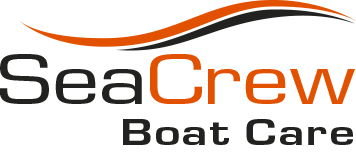
Book on one of our Upcoming HELM (O)Courses below. Future dates are available, please contact the office for details.
From 1 September 2013, anyone applying to the MCA for a Certificate of Competence will need a HELM certificate in addition to the existing requirements. There are 2 levels of HELM; Operational level (3 day course) and Management level (5 day course).
SeaRegs Training is approved by the MCA to offer the 3 day HELM (Operational) course from our Plymouth and London classrooms.
Plymouth Dates
| Course | Date | Duration | Price | |
|---|---|---|---|---|
| MCA HELM (Operational) | 22 Sep - 24 Sep 2025 | 3 day | £ 525.00 | Book Now |
Plymouth Price: £525
London Price: £POA
Assumed Knowledge: Relevant sea time
Duration: 3 Days
Costs Include:
- Lunch & Refreshments
- Course Notes Book
- All Equipment Necessary
Courses are non-residential, so accommodation is required in one of the many hotels or guest houses near the Centre. We can provide a list of recommendations.
Which CoC needs the HELM (O)?
This full list of qualifications needing the HELM Operational certificate is available on the MCA website. Included on the list are:
- Master 200 - OOW 500
- OOW Yachts less than 3000GT
- Yacht Engineer Y4 & Y3
- Engineer Officer of the Watch
- Master (Tug less than 500GT and 3000GT) Near Coastal
If you are applying to the MCA for the above qualifications you can do the 3 day HELM (Operational Level) course instead of the longer Management level course.
Course Content:
- Identify good practice in shipboard human resource management
- Identify the importance of the 'human element' in shipboard operation
- Apply the underpinning knowledge related international maritime conventions and recommendations, national regulations, and codes of practice and guidelines covered in other mandatory units when controlling the operation of the ship and the care for persons onboard at the operational level
- Apply the elements of task and workload management including, planning, co-ordintion, allocation and prioritisation of human and physical resources when controlling the operation of the ship and care for persons onboard
- Apply effective resource management techniques with regard to: allocation, assignment & prioritisation of resources; use of effective communications onboard and ashore
- Team-working principles
- Use of assertiveness, leadership and motivation principles
- Identifying and considering generated options including the decision-making process; the influence of culture on decision-making; selecting a course of action; and evaluating outcome effectiveness
- Managing fatigue and stress with regard to:
- Causes and effects of fatigue
- Causes and effects of stress
- Relation between fatigue and stress
- Identifying signs and symptoms of stress and fatigue
- Developing stress and fatigue management strategies to prevent stress and fatigue from affecting safety
- Contribute to shipboard training, learning, assessing and developing human potential with regard to:
- Formal and informal learning
- Learning from mistakes
- Continuous professional development
- Shipboard training, learning, coaching, mentoring and assessment
We hope that you can find the information you require on these pages, if you have any further questions, or require advice, please call us.
